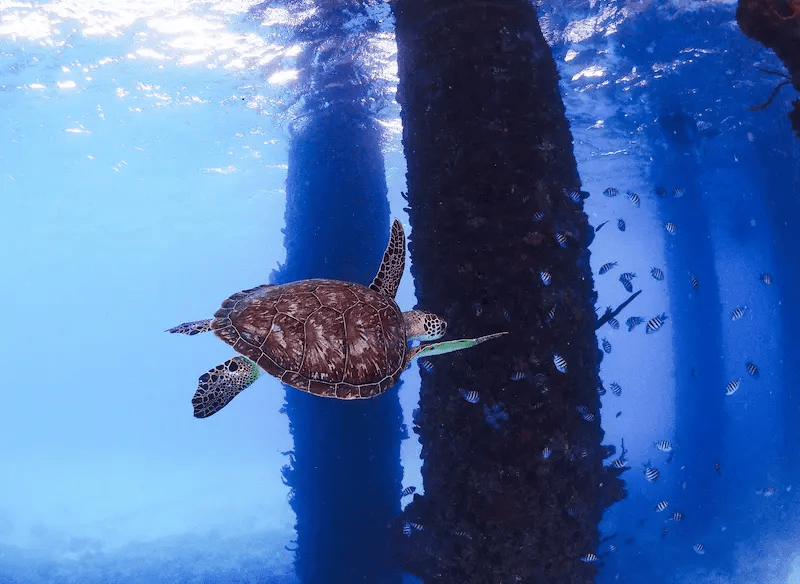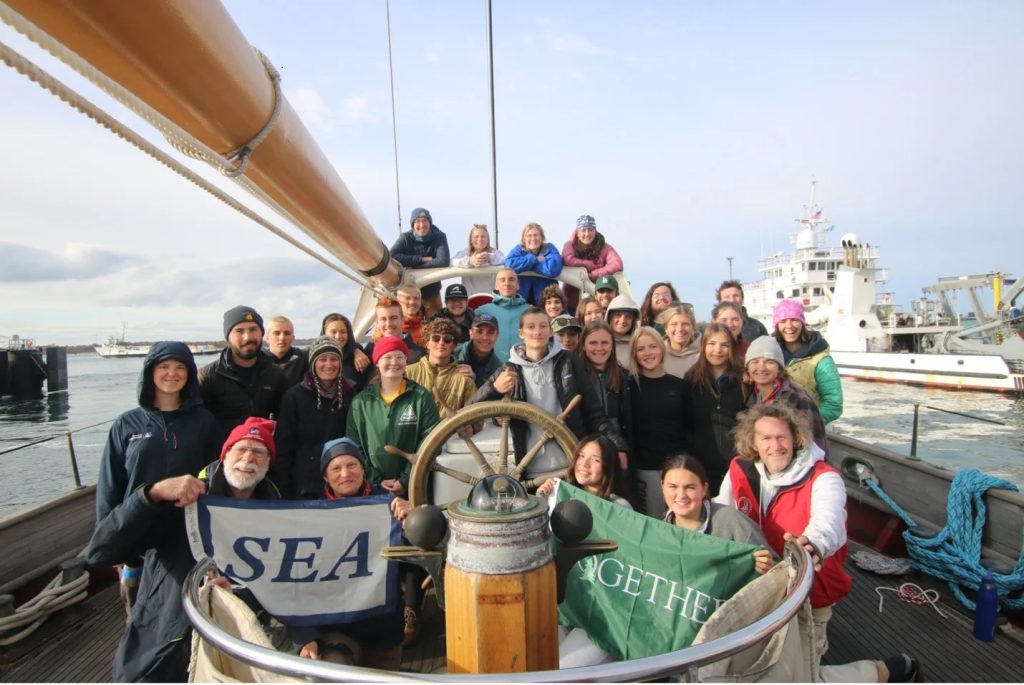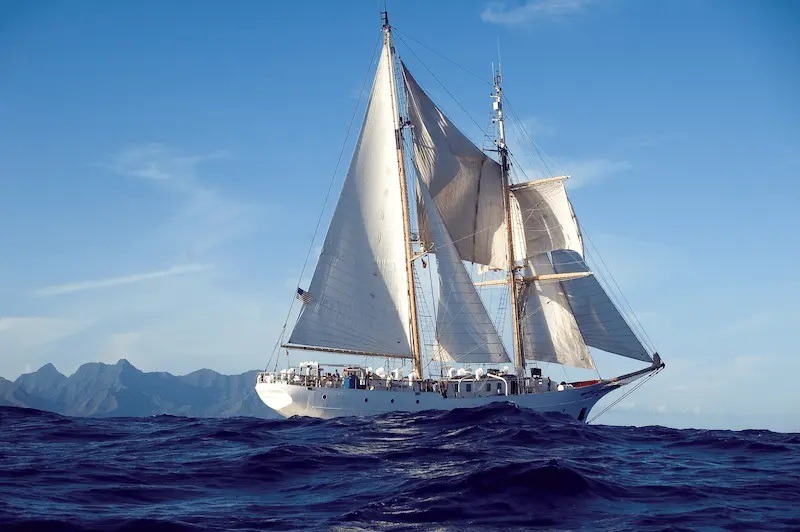Situated in the renowned oceanographic research hub of Woods Hole, Massachusetts, the Sea Education Association (SEA) has been at the forefront of marine and maritime education since 1971, educating over 10,000 college, gap year, and high school students. Through SEA’s interdisciplinary curriculum, students explore their passion for the ocean by experiencing cultural connections to the sea and engaging in scientific inquiry. Over the years, SEA alumni have gone on to successful careers in the various fields, becoming influential leaders and dedicated advocates for our ocean.

A sea turtle in the Caribbean, a coral restoration site
SEA programs are multidisciplinary learning communities focused on addressing critical environmental issues such as climate change, sustainability, biodiversity, human impacts on the ocean, and environmental justice. Acknowledging that human actions underlie environmental change, we realize that these issues must be approached from multiple disciplines across ocean sciences and blue humanities. With this in mind, SEA believes that students of all majors can benefit from deepening their understanding of and connection to the ocean through classroom learning and field research experience. All SEA programs are designed to fit seamlessly into undergraduate coursework as major, minor, or elective credit.

SEA students, 2024
Boston University has served as SEA’s school of record since 1971. All SEA courses are individually approved through Boston University’s internal course evaluation process. SEA students earn 17-18 credits for a semester program or 4-7 credits for a summer program which are recorded on a Boston University transcript. A formal Academic Advisory Board made up of representatives from institutional affiliates including BU convenes on an annual basis to review all SEA programs and courses.
SEA’s interdisciplinary approach extends to high school and gap programs, emphasizing the importance of diverse perspectives in finding and implementing solutions to challenges facing the ocean. By engaging students from various backgrounds and perspectives, these programs foster a holistic understanding of environmental issues. SEA high school and gap programs encourage collaboration and critical thinking, enabling students to appreciate the complex interplay of scientific, cultural, historical, and policy-related factors. This comprehensive educational experience equips students with the skills and insights needed to further their academic and career pursuits.

SSV Robert C Seamans
Exciting, important programs, training the next generation of scientists, biologists, and environmentalists – are you are a young person that you know ready to take the next step? Learn more:








0 Comments